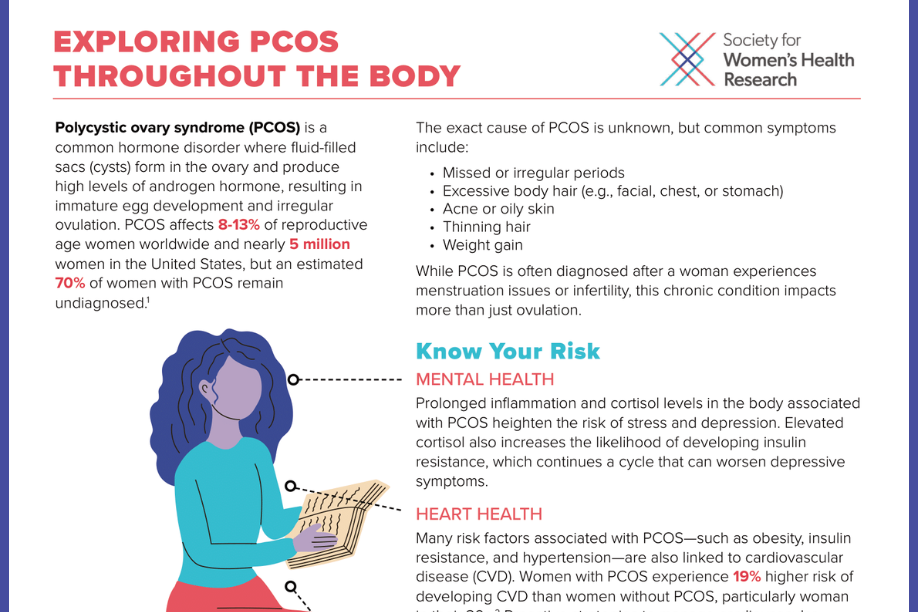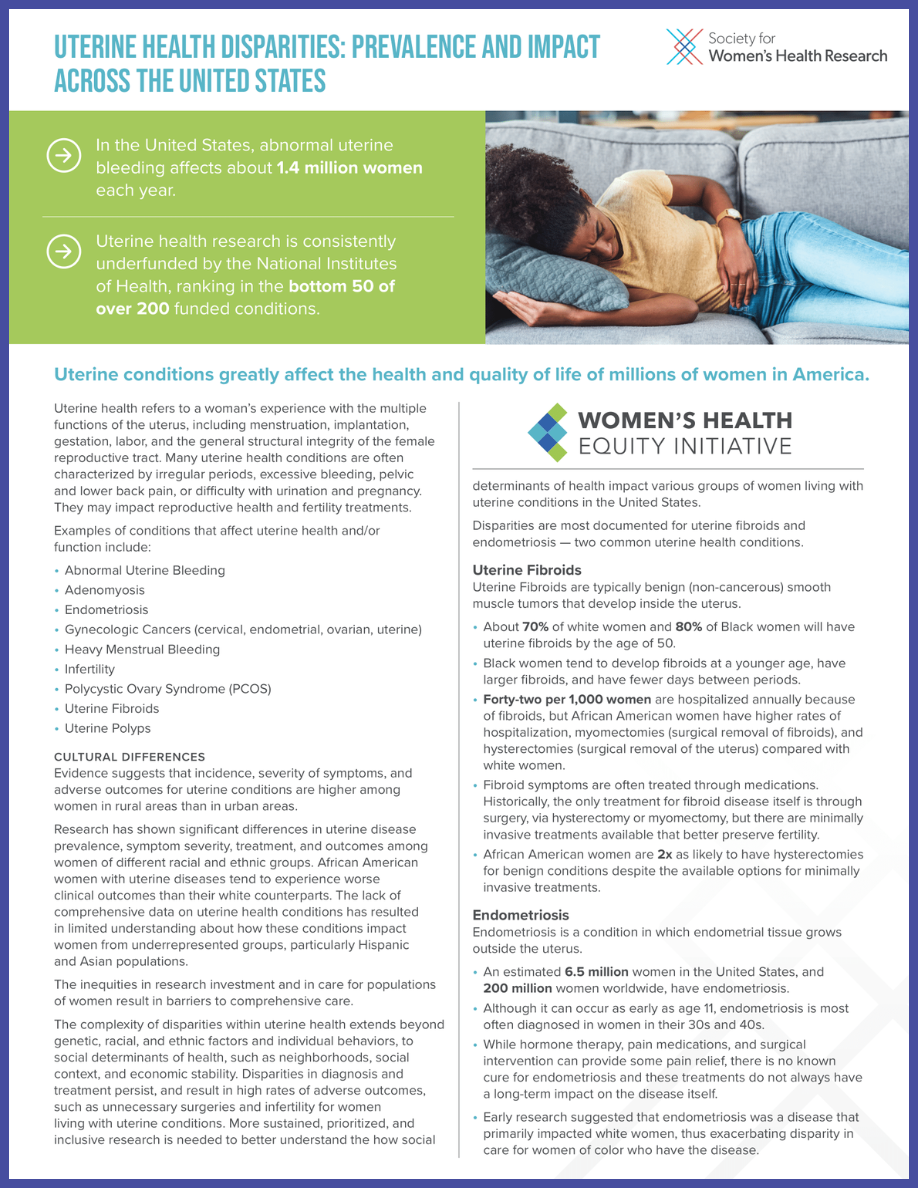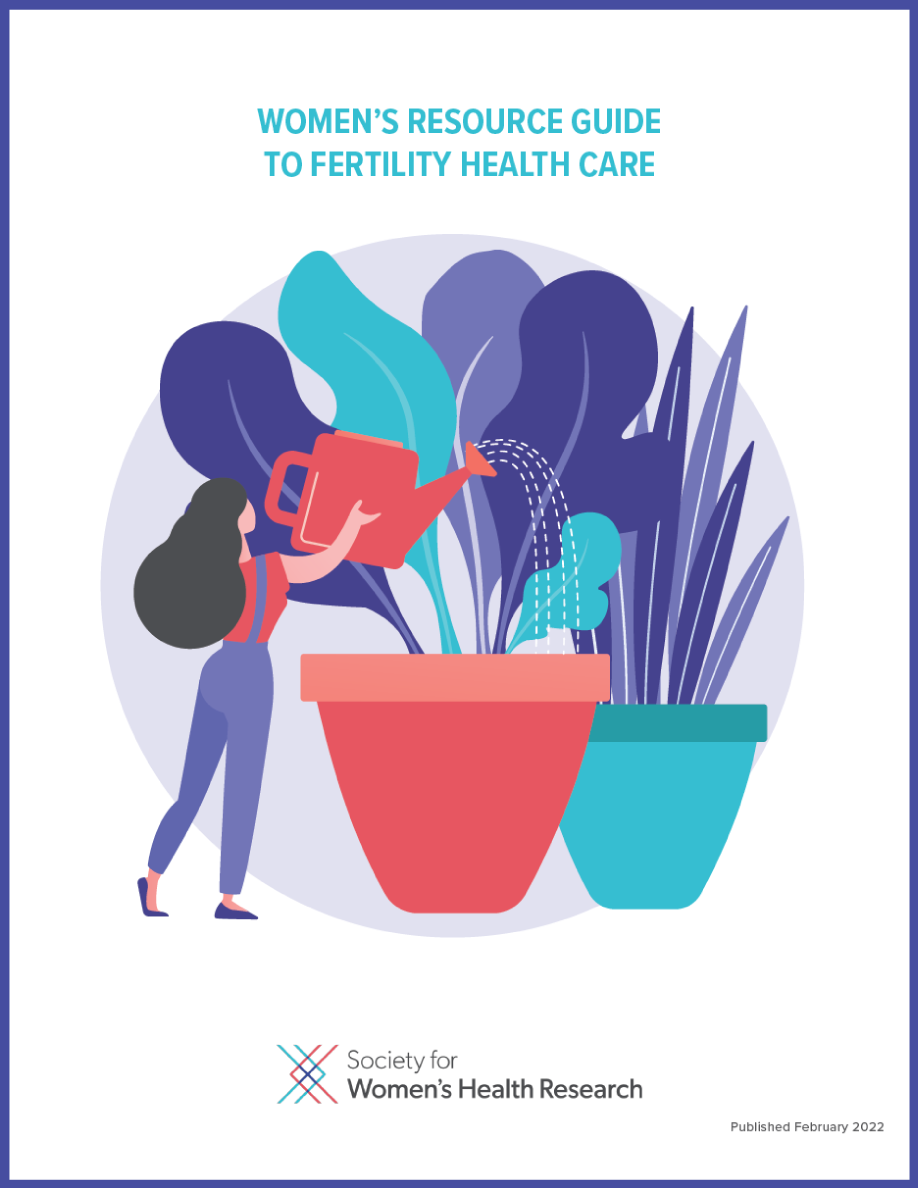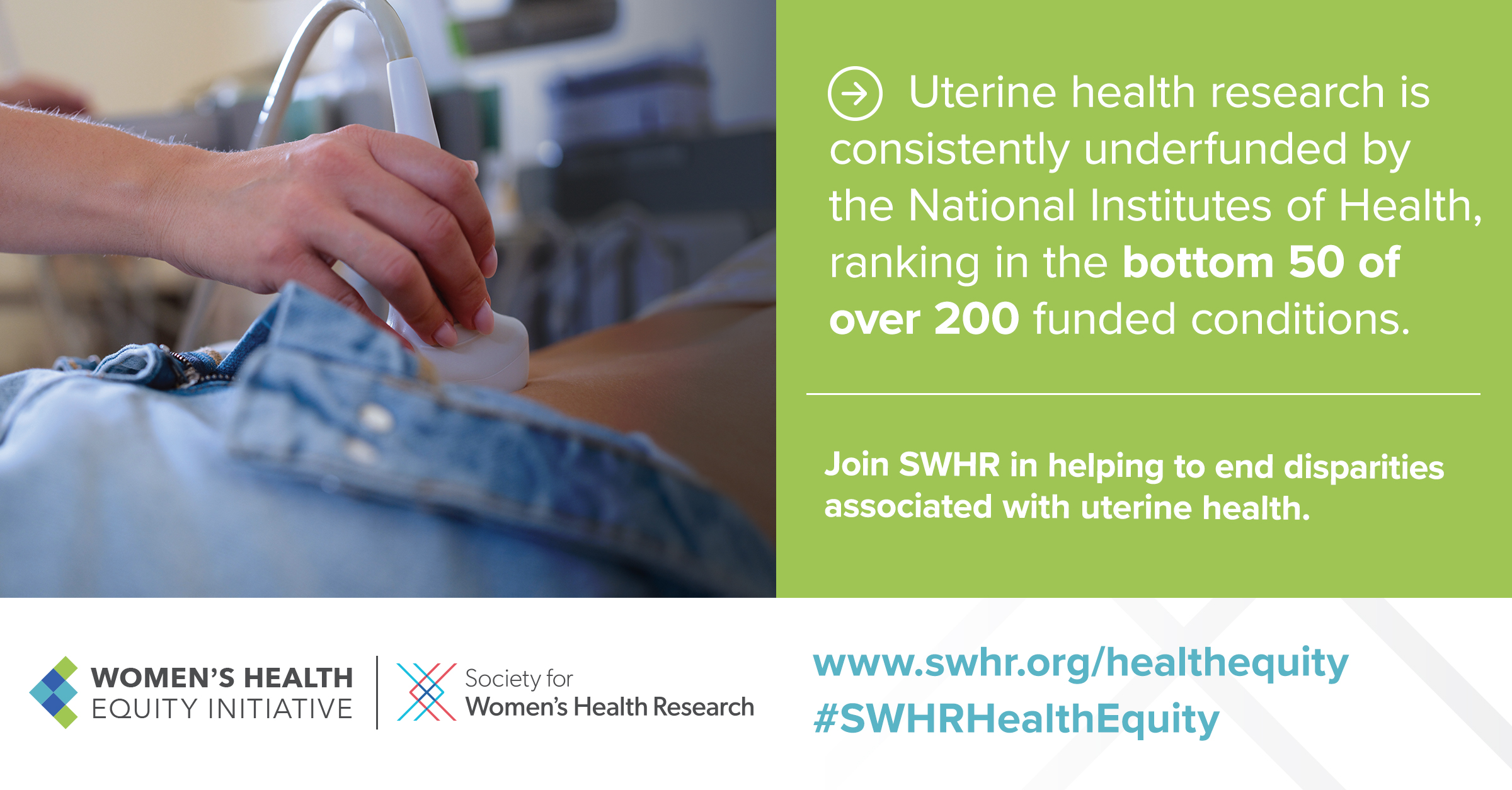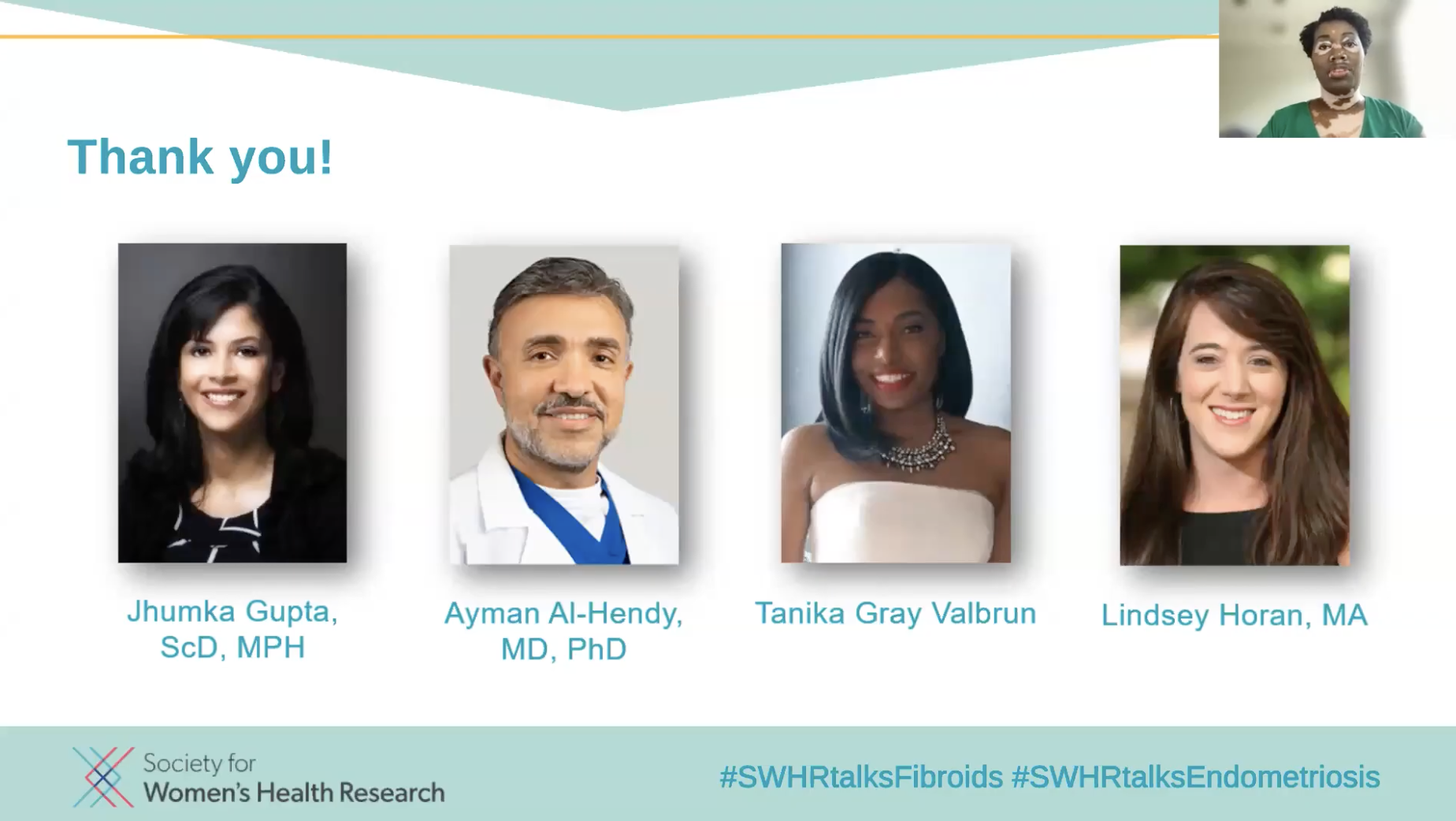Polycystic Ovary Syndrome (PCOS) is an imbalance of reproductive hormones that affects how the ovaries develop the egg released each month during the menstrual cycle and can cause the egg not to be released at all. Five to 10% of women between the ages of 15 to 44 have PCOS. Symptoms include abnormal and thinning hair growth, weight gain, darkening of the skin, and painful or irregular periods. Missed and irregular menstrual cycles can lead to cysts in the ovaries and infertility. In fact, most women with PCOS are diagnosed in their 20s and 30s only after experiencing challenges with becoming pregnant. Black women are underdiagnosed and disproportionately affected by PCOS and also are at increased risk of developing diabetes, uterine bleeding, cardiovascular disease, and psychological comorbidities. Pursuing and arriving at an accurate PCOS diagnosis is important for women to begin symptom management, decrease risk of developing serious health conditions, and continue family planning for those who so desire.
Polycystic Ovary Syndrome is part of the SWHR Gynecologic Health Network, which engages the following focus areas: Endometriosis, Polycystic Ovary Syndrome, Urology, and Uterine Fibroids.

